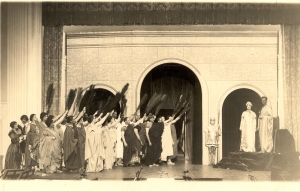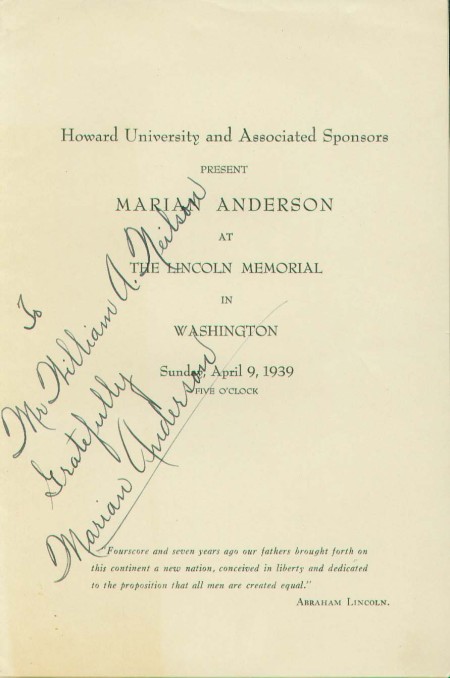
Program of Marian Anderson Lincoln Memorial Concert, April 9, 1939
Thursday, April 9, 2009 marks the 70th anniversary of contralto Marian Anderson’s concert at the Lincoln Memorial. This concert is remembered for many reasons: her voice; the songs. The fact that the Daughters of the American Revolution refused her request to sing at Constitution Hall, the largest venue in Washington, DC. In response, Eleanor Roosevelt withdrew her membership in the DAR, and President Roosevelt, along with other supporters, sponsored a concert on the Mall where 75,000 people came to hear her sing.
There is a Smith connection. In March 1939 Agnes Morthenthau Newborg, Class of 1914, wrote to President William A. Neilson about a meeting at the Smith Club of New York City, where it was suggested that the College confer an honorary degree on Anderson, in “…protest to the DAR over their undemocratic treatment of Marian Anderson.” She writes that “…It would be appropriate to have so liberal a gesture made by the College at the close of your distinguished career and in keeping with your liberal tradition.”
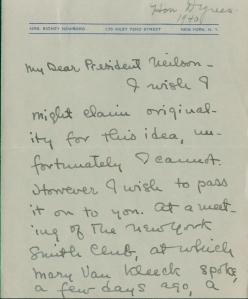
Letter to William A. Neilson from Agnes Morgenthau Newborg, Class of 1914
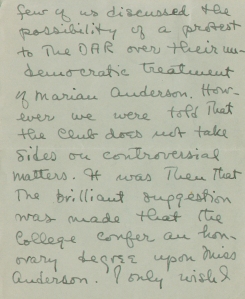
Letter to Neilson from Newborg, p.2
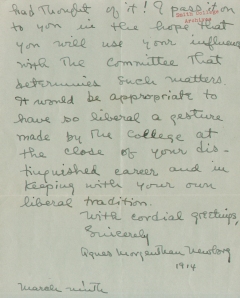
Letter to Neilson from Newborg, pg 3
Neilson writes back to Newborg that the Trustees Committee on Honorary Degrees has already met and finalized the degree recipients, but that he would “…be glad to lay it before the committee for consideration another year.” One of the sponsors of the concert was William A. Neilson, and the program shown at the top of this blog is a form of thank you note from Anderson. His name is listed among Washington luminaries and politicians as a sponsor on the back of the program.
Anderson gave the first concert of the1939-1940 Smith College Concert Series on November 22, 1939 at John M. Greene Hall. This was her 2nd appearance at Smith College. She returned to John M. Greene Hall to give a concert in 1950.
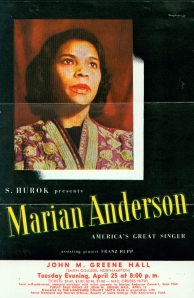
1950 Marian Anderson concert in John M. Greene Hall
In between, the Board of Trustees honored Anderson with a Doctorate of Music (Mus.D) in 1944. President Herbert John Davis read the following citation at the Commencement ceremony:
“Marian Anderson: An American woman of unselfish devotion, who through the splendor of her voice and nobility of her art, has awakended and fortified in the hearts of countless thousands a deeper understanding of that humanity in which we are all one.”
Anderson continued a long and distinguished singing career, both here and abroad. For most people, the breadth of her career is not as well known as that Easter Sunday concert on the Mall in 1939. She died in 1993 at the age of 96.
Further information about Marian Anderson can be found in the Werner Josten Performing Arts Library, Smith College, including her autobiography and many recordings of her work. Additional information about her Smith honorary degree, and other visits to the Smith campus can be found in the Smith College Archives.



 Posted by smitharchives
Posted by smitharchives 
